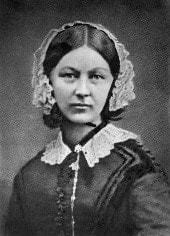|
History
|
At East Tilbury Primary School, children experience, enjoy and develop historical skills and knowledge through the foundation subjects. Skills are targeted, through cross-curricular links, encouraging children to ask questions to enhance their learning and understanding, whilst providing them with the abilities needed to use artefacts and resources successfully to find answers through their enquiries.
Through visits and visitors with a historical focus, children are given further opportunities to consolidate and further their historical understanding. We are able to immerse the children in developing their enquiring minds and enhance their historical knowledge.
Through visits and visitors with a historical focus, children are given further opportunities to consolidate and further their historical understanding. We are able to immerse the children in developing their enquiring minds and enhance their historical knowledge.
Early Years
Children in Reception at East Tilbury Primary School, learn about History under the umbrella of Understanding of the World through a range of fun, play-based activities and experiences, based on half termly topics.
People and communities
As children learn about the world around them they find out about the past through talking to parents, grandparents and friends and they develop an interest in their own story as well as the stories in their family – this is the beginning of developing an understanding of the past and helps them to learn about how other people are different from them, yet share some of the same characteristics and ideas.
People and communities
As children learn about the world around them they find out about the past through talking to parents, grandparents and friends and they develop an interest in their own story as well as the stories in their family – this is the beginning of developing an understanding of the past and helps them to learn about how other people are different from them, yet share some of the same characteristics and ideas.
KS1
Pupils will develop an awareness of the past, using common words and phrases relating to the passing of time during their history lessons at East Tilbury Primary School. They will be taught where the people and events they study fit within a chronological framework and identify similarities and differences between ways of life in different periods. The children will be encouraged to use a wide vocabulary of everyday historical terms. They will be taught, through the use of well-chosen resources, some of the ways in which we find out about the past and identify different ways in which it is represented.
|
During Key Stage One the pupils will learn about:
• Changes within living memory • Events beyond living memory that are significant nationally or globally • The lives of significant individuals in the past who have contributed to national and international achievements. • Significant historical events, people and places in their own locality. |
KS2
Pupils will continue to develop a chronologically secure knowledge and understanding of British, local and world history, establishing clear narratives within and across the periods they study. Through the foundation subjects they will have the opportunity to regularly address and sometimes devise historically valid questions about change, cause, similarity and difference, and significance. Using a range of high quality resources the children should understand how our knowledge of the past is constructed from a range of sources.
During Key Stage Two the pupils will learn about:
During Key Stage Two the pupils will learn about:
- Changes in Britain from the Stone Age to the Iron Age
- The Roman Empire and its impact on Britain
- Britain’s settlement by Anglo-Saxons and Scots
- The Viking and Anglo-Saxon struggle for the Kingdom of England to the time of Edward the Confessor
- A local history study
- A study of an aspect or theme in British history that extends pupils’ chronological knowledge beyond 1066
- The achievements of the earliest civilizations – an overview of where and when the first civilizations appeared and a depth study of one of the following: Ancient Sumer; The Indus Valley; Ancient Egypt; The Shang Dynasty of Ancient China
- Ancient Greece – a study of Greek life and achievements and their influence on the western world
- A non-European society that provides contrasts with British history – one study chosen from: early Islamic civilization, including a study of Baghdad c. AD 900; Mayan civilization c. AD 900; Benin (West Africa) c. AD 900-1300



